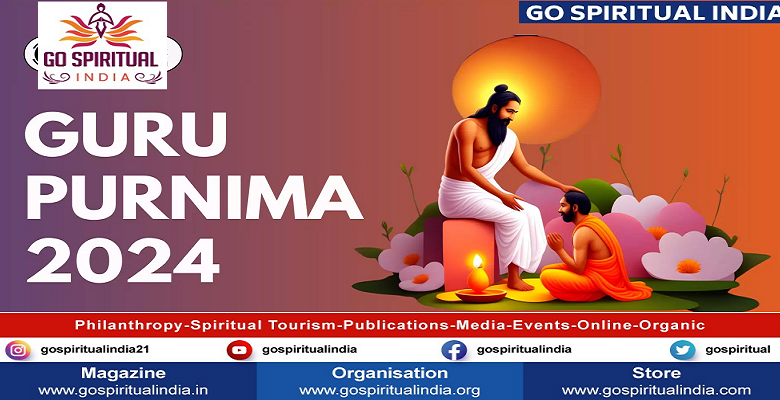
As the full moon graces the sky on the auspicious day of Guru Purnima, devotees across India and around the world gather to honor their spiritual guides and teachers. This revered festival, which falls on the first full moon day of the Hindu month of Ashadha (June-July), holds profound significance in the spiritual and cultural fabric of India.
The Essence of Guru Purnima
Guru Purnima is a day dedicated to expressing gratitude to gurus—spiritual teachers who lead their disciples from darkness to light, from ignorance to knowledge. The term ‘Guru’ is derived from the Sanskrit words ‘Gu’ meaning darkness and ‘Ru’ meaning light, symbolizing the one who dispels the darkness of ignorance. This day is not just about paying respects to one’s spiritual teacher but also about celebrating the timeless tradition of knowledge transfer and the guru-shishya (teacher-disciple) relationship.
Historical and Mythological Significance
Guru Purnima has deep roots in Indian history and mythology. It is believed to be the day when the great sage Vyasa, who is credited with composing the Mahabharata and compiling the Vedas, was born. Hence, the day is also known as Vyasa Purnima. Sage Vyasa is considered the ultimate guru in the Hindu tradition, and his contributions to preserving and propagating spiritual knowledge are honored on this day.
For Buddhists, Guru Purnima is significant as it marks the day when Lord Buddha gave his first sermon at Sarnath, setting in motion the Wheel of Dharma. Buddhists across the world commemorate this day by participating in meditation and chanting sessions, seeking to deepen their spiritual practice.
Celebrations and Rituals
The celebrations of Guru Purnima are marked by various rituals and ceremonies. Devotees wake up early to take a holy dip in rivers, especially in the Ganges, as a symbol of purification. They visit temples and ashrams to offer their respects to their gurus, often presenting them with flowers, fruits, and other offerings.
Spiritual discourses, satsangs (spiritual gatherings), and meditation sessions are organized, where the teachings of revered saints and sages are discussed. Many devotees observe fasts, engaging in self-reflection and introspection. This day is also an opportunity for many to start anew on their spiritual path, seeking blessings and guidance from their gurus.
The Modern Relevance of Guru Purnima
In today’s fast-paced world, the teachings of gurus are more relevant than ever. Guru Purnima serves as a reminder of the importance of spiritual guidance in navigating life’s challenges. It emphasizes the value of humility, learning, and the continuous quest for knowledge and self-improvement.
Modern spiritual leaders and gurus use this occasion to impart wisdom that blends ancient teachings with contemporary relevance, addressing issues such as mental health, stress management, and the pursuit of inner peace. Through online platforms, these teachings reach a global audience, transcending geographical boundaries.
Conclusion
Guru Purnima is a celebration of the eternal bond between the guru and the disciple, a relationship that transcends time and space. It is a day of reflection, gratitude, and recommitment to the spiritual journey. As the moon shines brightly on this sacred night, it illuminates the path of wisdom and enlightenment, guiding countless souls towards spiritual awakening.
May the blessings of the gurus continue to light our way, leading us towards a life of knowledge, compassion, and inner peace.







